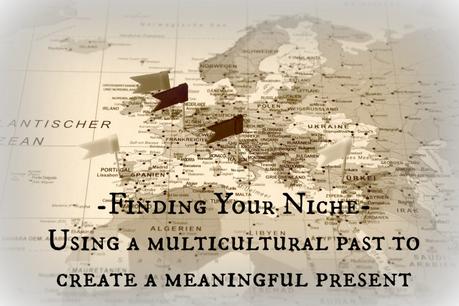
In 2014, I hosted a blog series called "Finding Your Niche: Using a Multicultural Past to Create a Meaningful Present." The result was a set of essays from adult third culture kids, each different and each exploring what it was to find a niche as an adult. Writers talked about the jobs and communities they had found that complemented their multicultural past.
The series ended up being the inspiration for a panel discussion that will be held during the Families in Global Transition Conference in The Hague this March. I am excited to be facilitating this panel, featuring other adult third culture kids who will speak to the journey, joys, and challenges of finding a niche that connects their multicultural past to a meaningful present.
If you are an expat, a global nomad, a third culture kid, an adult third culture kid, or someone who loves and works with all of the above, then this is the conference for you! It's not too late to register for FIGT17NL! Just click here and it will take you to the registration page. You will be so glad you came!
In the meantime, I am reposting one of the submissions from the series.
Cindy Brandt has written for Communicating Across Boundaries before and I'm so happy to welcome her again with this repost of her essay for the "Finding Your Niche" series.
*****
TCKs and "finding your niche" seems to be an oxymoron.After all, we are TCKs, Third Culture Kids, as in, they couldn't fit us in any category so they created an extra option just to throw us all in there.
We are the miscellaneous crowd. We are the ones who can thoroughly enjoy the company of whoever it is we keep during the day, but when the sun sets, we look in the mirror and see a different color skin, or go home to speak a different language; we don't ever fully belong anywhere. No matter which group of people we are with, there always seems to be a slice of insider information we can't access. We scramble to uncover that knowledge, but feels a bit like flailing awkwardly at the fringes of each particular culture.
I am reminded of my favorite children's book, Giraffes Can't Dance by Giles Andreae and Guy Parker-Rees. It's a story of a giraffe named Gerald,
"whose neck was long and slim. His knees were awfully crooked and his legs were rather thin."Each year at the Africa Jungle Dance, he freezes at the thought of dancing in front of his peers with his gangly limbs. Like Gerald, TCKs know intimately the feeling of crippling self-consciousness, and the fear of being found out we are not really one of them.
Of course, there are ways that TCKs are just like other people. We go through normal developmental phases in which we discover our own likes and dislikes; our skills and assets. We have different passions and desire to live into them. It's just challenging to simultaneously walk this journey of self discovery while skittering on the outskirts of cultural worlds. It's too difficult to hear the true calling inside of us over the noise of banging cymbals keeping us away from the mainstream.
In order to find our niche, we must cut through the noise and stop being led by fears of exclusion. TCKs are rich with benefits. We make the best spouses, friends, neighbors, and employees by bringing our dynamic stories and a myriad of experiences. We are strong from having endured difficult life transitions, yet sensitive from having been conditioned by a diversity of worldview. We are flexible from years of shifting from one culture to another, yet firm in our convictions having learned to hold on to core values while physically moving to and from. We are not either/or, we are both/and. We may not belong one hundred percent; but we can be one hundred percent present when we show up.
When we dart from one place to another, distracted by finding a place to belong, we miss investing the whole of ourselves in any one single space. In order to find our niche, we must bravely claim the life we're in and start acting like we have already arrived. We don't apologize for being different, instead, we bring our divergent ideas to sharpen the existing ones. We don't dismiss monoculturals around us, instead we listen and learn from them, insistent upon building meaningful relationships. We vehemently find common ground until the fears and lies and insecurities of being excluded melt away by shared passion.
Gerald the giraffe was booed off the dance floor competition because he listened to the voices telling him there is no way he can dance. He retreated into a quiet clearing, lamenting his situation beneath the gleaming moon, when a small cricket coaxed him to cut through the noises of the jungle and listen to the music only he can hear. Slowly, he began moving his body to the rhythm of that music and by the end of the story, every animal stood in awe of his beautiful movements.
It's like what Gerald learns by the end of the story: "We all can dance, if we find music that we love."We don't have to flail awkwardly on cultural perimeters. We need not continuously seek approval for being the unique persons we are. We can walk confidently onto the dance floor, clothed in the many colors of our background, take a deep breath, and just begin to dance.

You can find Cindy at http://cindywords.com/

